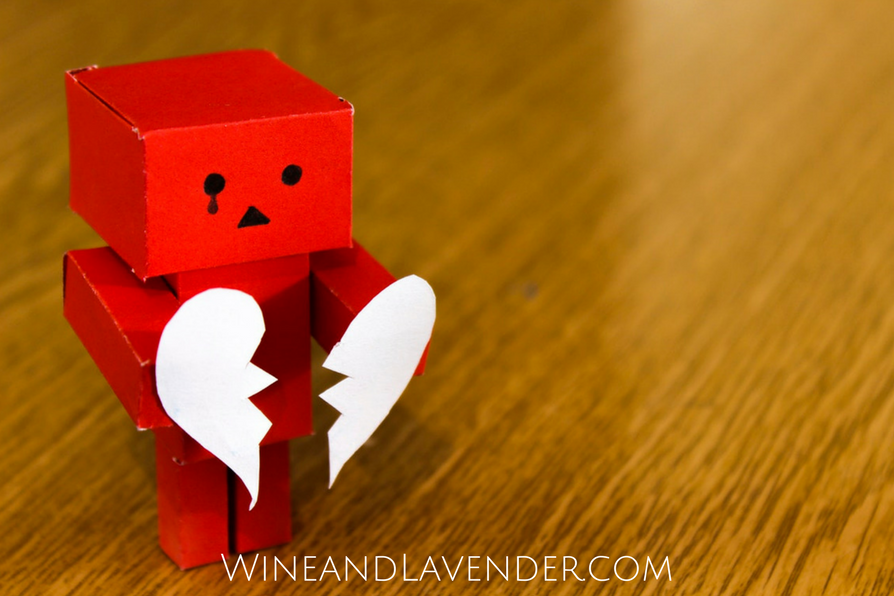5 Tips for Talking to Kids About Death

It was a Wednesday afternoon when I got the text, “Dad passed away.”. There had been plenty of times before where I was expecting that text, but through the love and grace of God, I didn’t get it. My Father-In-Law had health issues for quite some time and to say that he was a strong man and a courageous fighter is an understatement.
Over the years, his body slowly deteriorated but his spirit and mind didn’t follow suit. He was a great man, a good father, father-in-law, grandfather, husband, and friend. He had helped so many people during his life and as mentioned various times throughout his services, “They don’t make men like that anymore”. That Wednesday afternoon, the world lost a beautiful soul and people who never got to know him or spend time with him got a raw deal.
My children got a raw deal.
My eldest has memories of him that I pray will stand the test of time. My middle kiddo’s memories will likely fade and my youngest probably won’t remember his Grandpa.
Although this in no way compares to the real thing, we hope to keep the memory of their grandfather alive through a plethora of images and stories of his life. They deserve to know what a good man he was and the impact he made on people. Even though they won’t have as much time with him as we had hoped, they will come to know him as everyone knew him- nothing short of a wonderful, brilliant, and talented man who loved his family dearly.
Our first task after his passing was to inform them of his passing… This was the hardest part.
5 Tips for Talking to Kids About Death
We chose not to tell our children what had happened that day. We needed to support my Mother-In-Law who was having a very difficult time with it (rightfully so) and arrangements needed to be made. So we decided to to hold off on breaking the news until Friday after school, also giving them some time over the weekend to process it.
I loved him very dearly, but managed to keep my composure while the children were around. The hardest day for me to deal with his passing was Friday. I played through my mind what I would say, how I would say it, and had a hard time finding the right words.
I broke down multiple times that day, trying to decide the best way to tell my children that their Grandpa passed away. Whenever I began to make a little progress, I would picture my eldest’s reaction to the painful words and that would send waterfalls down my cheeks. I had no way of knowing how any of them would react to the news, as this was their first brush with death, but I expected the absolute worst.
So I called my parents and my sister for guidance on the subject and was offered a lot of good advice. I also researched online for the right “recipe” of words, phrases, and physical affection to give or show to make the harsh words sound acceptable.

As research and suggestions went (and they were all good ones), here are some helpful tips on talking to kids about death:
Deliver the News Surrounded By Loved Ones
My father had suggested that we tell them while other family members were present- so that they didn’t feel alone in their grief. Given their ages and the fact that this was our first time having to explain this to our children, I decided on a family meeting of just us instead. This way, they could feel free to react in any way that they needed to.
I didn’t want them to hold it back for the sake of others. I wanted them to release any and all the emotions they cared to… comfortably. This, I felt, was what was right for my family, but your family, it might be different and you might take comfort in the company.
Use Words They Can Understand
When we first told my middle kid that Grandpa passed away, he looked at us confused and asked, “So… he passed out?”. He had no knowledge of the phrase, “Passed Away”, being this was our first talk we’ve ever had to have on the topic. We then went on to tell him, “No, Grandpa didn’t pass out, his body stopped working and he died. He went to heaven to live with God.” He seemed to be able to grasp the idea much better once we clarified.
If you’re having to have this talk (and I’m sorry if you are), remember to use words and phrases they are familiar with.
Help Them to Understand Death
Telling my children that Grandpa went to live with God helped them to understand the situation better, but there is always the question that if Grandpa is happy and living with God, why is is everyone sad? We had to reiterate to our children that we will all miss Grandpa very much, and although we know he’s in a better place and happy, we’re still sad that he’s not here.
According to the Child Development Institute, “Between the ages of five and nine, most children are beginning to see that all living things eventually die and that death is final.” (See that article here.) If your child doesn’t yet understand the ramifications associated with death, they may not understand why people are reacting the way they are.
Let Them Know What To Expect
My middle kiddo seemed confused when we asked him to draw a card for Grandpa so we can leave it with him. He asked, “Are we just going to let it blow away in the wind?”. He had neveer experienced a wake or funeral. He didn’t understand how we would deliver the card to Grandpa. We had to explain the process from wake to funeral to burial. We let him know that we were going to see Grandpa one last time before he went away and wanted to leave the cards with him. My son understood and accepted that answer.
We also explained to the children why it was important for us to be at these services to say goodbye- not only for Grandpa, but for everyone else in the family who was sad about his passing, too.
Going To Services
I took days contemplating whether or not to bring my children to the wake. Were they old enough? Would this frighten them? Was it better for them just to remember him the way he was? After giving it much thought, we decided that our children should have that last opportunity to see their Grandfather before he was buried. They should see the number of people that also loved him and came to pay their last respects.
They didn’t have much to say at the wake and thankfully, they didn’t seem frightened or scared to see Grandpa the way he was. During the funeral services, they were able to see all the people who came to celebrate his life and they were able to listen to the heartfelt words that were delivered by their Grandma, their Father, and their Uncles about him. At the end, I felt that we made the right decision.
When Children Lose a Loved One
My eldest was upset over her Grandfather’s passing. She had spent a lot of time with him and he was one of the biggest influences in her life. He loved her so dearly and the popcorn-filled Friday nights they had spent together will forever hold a place in her heart. Upon his passing, she was given a doll that he had let her “borrow” once before, and she will also always have that as a reminder of the memories she shared with him.
My middle kid had a hard time understanding it at first, but came to peace with it.
My youngest will never get to experience the love and joy we all felt around my Father-In-Law, but he will forever be reminded of it.
If your child was close to the person who passed away, providing them with emotional support and love during this difficult time is imperative. Assure them that they are not alone in their feelings and that you are there to support them. They need to know that there are other family members that are there for them and feel the same way. Giving them a personal item from the loved one to “remember” them by might help to ease their pain.
In addition to providing support in your home, I reached out to our children’s school counselor. In the event that my children needed to talk to someone else about their grief, she is available to assist.
If your children might be too young to remember the loved one they lost, keeping that loved one “present” might help to keep your children connected to that person. Tell them stories, show them pictures or videos, and by doing so, you’re keeping their memory alive.
Moving On Without Our Loved One
The dark cloud that had been cast over our family for so long was slightly lifted when we laid him to rest because we found comfort in knowing that he was in a better place- free from pain, able to eat, sing, and talk (he was extremely charming when he could talk!), and most of all- in the company of our Lord, whom he cherished.
All in all, my Father-In-Law would have loved the tributes that were made to him, the celebration of his life, and the family coming together to arrange it. My children will also remember this, and that was one nice thing to take away from this experience. We will always have the memories of him and will always keep him with us in our hearts, minds, and through stories.
Talking to kids about death can be difficult and while not everyone celebrates life or death the same, for our family, these tips seemed to work well. If you have recently lost a loved one, I’m so very sorry for your loss and understand that nothing can take the pain away, but offer you the comfort in knowing that while things may never be the same, it will get a little easier with time.
When you don't have the words... Check out: Talking to #kids about death. Click here. #parenting Share on XIf you found this post helpful, check out 8 Easy Ways to Deal with Separation Anxiety in Toddlers and 10 Ways to Get Siblings to Stop Fighting.
Have your children experienced the loss of a loved one? What worked for your family? Do you have any tips to add to this list? I’d love to hear about it in the comments below.

This brought tears to my eyes. You have great tips Pam. Thank you so much for taking time to write this, I can imagine it was painful. We had 2 very close family members pass throughout the last few years. One was completely unexpected, I got the call while at church and I didn’t even have a chance to shield my kids because I broke down, sobbing all the way to the scene of the accident. Ahh…It brings tears to my eyes to remember that. The most recent death was my grandpa, last year. Again no shielding because he passed away in our home while on hospice. I feel like the kids took it better the second time around. And we also chose to have the kids at the funeral.
Thanks so much for sharing, Crystal. It’s so difficult to explain death to children when we’re still processing it ourselves. I can’t imagine that it gets easier, but focusing on the good memories definitely helps.